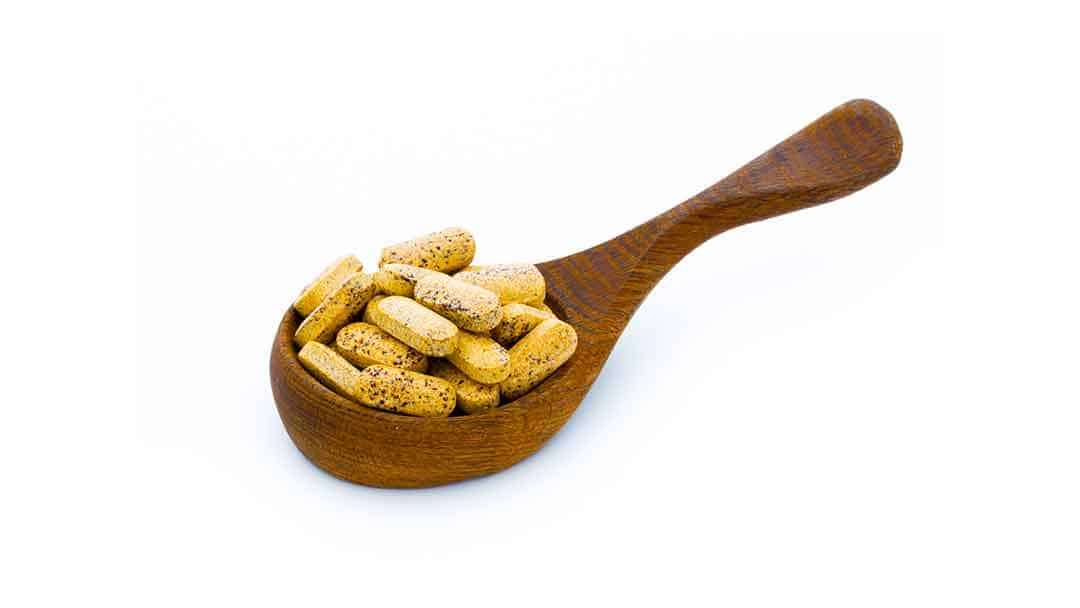Fastpacking & Supplements | What Helps?

As an Amazon Associate we earn from qualifying purchases made on our website. If you make a purchase through links from this website, we may get a small share of the sale from Amazon and other similar affiliate programs. You can read our complete legal information for more details. By using this site, you agree the information contained here is for informational purposes only. For specific medical questions, consult your doctor. NO information on this site should be used to diagnose, treat, prevent or cure any disease or condition.
As a rule of thumb, I believe you should get all your nutrition from whole-natural foods like animal protein, fruit, and a few vegetables. However, even at home, a little supplementation is required; for example, I class good quality salt like Redmond Real Salt as a supplement.
On a Fastpacking adventure, my views change a little. While fastpacking, eating fresh food while on the trail is challenging. Therefore, it may be a good idea to take some supplements with you.
These will provide a welcome energy boost and help you recover so that you are ready for the next day.
Obviously, you need to be sensible with how much you take with you, as you need to keep your pack light, and what you take will probably change depending on the length of the adventure and its difficulty.
When you plan your next fastpacking adventure, you may want to include these supplements as proper food and nutrition is one of the 9 Fastpacking Rules.
Electrolytes & Zinc
Fastpackers stamina and a good night’s sleep can be helped by consuming zinc and electrolytes with magnesium for their endurance-boosting nutritional benefits.
Magnesium is essential for muscle contraction and energy transfer to your muscles. Conversely, zinc is involved in the process of converting food into energy (so you can put it to good use).
Both of these minerals are essential for the body’s functioning, and runners quickly exhaust their stores during long training periods.
When it’s colder out, sometimes my calf muscles cramp up, but when I take electrolytes, it is far less often.
So, what do I use? For electrolytes, my go-to is a powder mix called Re-Lyte which is produced by Redmond Real Salt. In a single serving, their mix has the following:
- Sodium 810MG
- Potassium 400MG
- Chloride 1280MG
- Calcium 60MG
- Magnesium 50MG
- Coconut Water Powder 80MG
They have flavored and unflavored options.
Another reason I love this brand, aside from sourcing their salt from a salt mine in Utah and not the toxic ocean, is that they give our readers 15% off their first purchase. Just use this discount link or type in WILD at checkout.
What about ZINC? I like to eat oysters as they have plenty, but it doesn’t make sense to bring them with you on a trip…duh.
That’s why I’ll use a supplement from Garden of Life, RAW Zinc. I’m not sure if this is the best out there, but it seems to be clean and free of unwanted fillers. I only take this in limited quantities when I’m on the trail for a few days or when I train heavily for a week.
Zinc, in my book, is not a daily-use supplement unless, of course, your doctor tells you you need to. In fact, it can be harmful if overused and deplete your immune system. This article has a good outline of Zinc and dosage.

Multivitamins
Endurance nutrition, which includes diet and running supplements, is greatly aided by vitamin intake.
I’ve been told Vitamins C and E are rich in antioxidants, protect cells from free radical damage and reduce fatigue (while also fighting muscle damage and promoting cardiovascular health).
Runners who go low on vitamin B-12 may find it challenging to use other vital nutrients, and they may also experience increased fatigue and weakness.
Docs say Vitamin D3 is essential for strong, healthy bones. Muscular contraction, neuronal stimulation, immune system function, and an improved anti-inflammatory response are all physiological processes that require vitamin D3, making it crucial for peak sports performance.
Taking a high-quality multivitamin before, during, and after a run may help you maintain your strength and stamina.
Amino Acids
I just started taking these as part of my training regimen and when I’m out on the trail. The more I get into fitness, the more I try things, and I’m glad I found these.
Not all amino acids are created equal. Yet, the ones being produced by the legendary company, KION, are top-notch.
According to KION, “New research shows that EAA supplements rich in the amino acid, leucine, work even better than traditional EAAs to stimulate muscle protein synthesis, aid in muscle repair, and support athletic recovery.*”
That pretty much sums up their importance. The other cool thing is that they offer our readers a 10% discount with this link or by typing WILDLUMENS at checkout.

Fish-Oil with Omega-3 Fatty Acids
Fish Oil is high in Omega-3 fatty acids; for me, they are a lifesaver for preventing and alleviating inflammation, stiffness, and joint discomfort.
Extremely steep terrain increases the risk of injury, stiffness, and joint pain for hikers. I know plenty of other fastpackers that take fish-oil to help their joints.
It is common practice for hikers to take ibuprofen at the end of a long day of hiking in the wilderness to ease the pain in their aching muscles and joints. However, if you plan on going on lengthy fastpacking adventures, you may want to reconsider taking too much ibuprofen because it slows down muscle healing and growth.
Taking too much ibuprofen can damage your heart, kidneys, and stomach lining, which is a known side effect.
Fish oil is widely known to be a concentrated source of omega-3 fatty acids. Be sure only to use fish oil that has been analyzed for potential heavy metal contamination. This brings me to the super brand KION once again.
They make cold water fish oil made out of anchovies to help mitigate exposure to those heavy metals like mercury.
It’s a no-brainer to use this link and get a 10% discount on their site or type in WildLumens at checkout.

Protein
Protein accounts for 25-40% of my calorie intake daily. If you have a more active lifestyle, nutritionists advise us to consume more towards the top end of that range.
Carrying a heavy pack up and down mountains all day significantly demands muscle strength and recuperation time. If you satisfy your protein needs, you’ll be able to move faster, recover faster, and keep your strength up.
Due to the weight and volume limits of fastpacking food, it can be pretty challenging for fastpackers to get adequate protein when out on the trail.
For me, Jerky, biltong, protein bars, and protein powder are all trail staples. Right now, I use a combination of dehydrated meat and dehydrated beef liver to get me through my adventures.
I use Carnivore Crisps, which uses grass-fed and finished animal meats and no sugar. Plus, our readers get a 10% discount with this link or type in Wild at checkout.
Protein powder has the advantages of being easily absorbed, low in weight, and compact in size. Because your muscles can readily utilize the proteins, your body won’t resort to wasting muscle tissue to meet its daily requirement for amino acids.
These are two protein powders that I have used:
Iron
A lack of iron, which prevents your blood from transporting oxygen to your muscles, may drastically limit your fastpacking pace. Iron stores are depleted due to effort, heavy perspiration, and blood loss.
For this reason, serious long-distance fastpackers may benefit from checking their ferritin and hemoglobin levels.
Caffeine reduces iron absorption by about 6%, so it’s best to enjoy that delicious cup of joe an hour before or after breakfast.
What I do to get iron is munch on Carnivore Crisps Beef Liver snacks. Beef liver has an ample amount of Iron, and the dehydrated version seems to help when I’m fastpacking. Just use this link to get that 10% discount and pick them up.
Just so you know, within 100 grams of beef liver, you will find 4.78 milligrams of iron.
Side Note: Using a cast-iron skillet is another simple way to include iron in your home-cooked meals.
Calcium
Without calcium, a fastpackers list of essential nutrients would be lacking a crucial component.
When you run, you put a lot of pressure on your skeleton. Repetitive trauma to the feet and joints from fastpacking long distances, mile after mile, can lead to stress fractures and other issues.
Yet, calcium is essential for bone health and maintenance, just like muscle health and care. With the help of calcium supplements, your strong bones can handle the impact of running.
I don’t take a calcium supplement when I’m on the trail, but I do drink a ton of Raw Milk, which seems to do the trick.
Or, if you want to really up the ante, drink colostrum or use a colostrum powder.
Final thoughts
I know I will be on the trails a lot, most weekends, with long adventures spread throughout the year. So, I make sure I spend my time at home eating nutrient-dense, healthy food. Which helps ensure I am in the best health possible.
Then if I am going out for a quick weekend Fastpack that starts on a Saturday and ends on a Sunday, I will probably only take some jerky, Carnivore Crisps, and maybe a few protein bars. If you want more snack ideas, then check out this quick list.
However, the longer my adventure is, the more critical supplementation and nutrition become. That’s why we wrote this Fastpacking Food Guide.
As with anything that comes to health and nutrition, be sure to get direction from your doctor. This post is just my view, and I’m definitely not a doctor or nutritionist.



